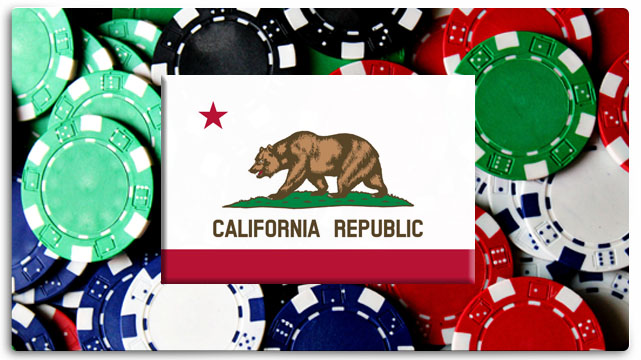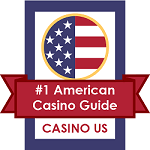Introduction
The constituents ofNative American gaming are Casinos and bingo halls, inclusive ofother gambling operators on Indian reservations or other tribal landin the United States. States have limited ability to forbid gamblingthere due, to the existence of tribal sovereignty in the UnitedStates which avails indigenous tribes the inherent authority togovern themselves within the boarders in the U. S.
This article willfurther present a historical appraisal of Native American casinos toavail you requisite knowledge of the casino gaming.
Both cases would go on to influence the gambling landscape of America entirely. Native American casinos are still often the only access people have to casino gambling in certain states, as online casinos are still widely banned. You can see how things lie for gambling in America today by clicking here.
History

Gaming establishments onNative American land are nothing new. They’ve been around officiallysince 1988 but are still a subject of controversy. There’s generalawareness among the public of the existence and purpose of suchvenues. Although, a close look under the surface of summarised factsexposesmyriad nuances that affect how tribal gaming is understood.Just like with any other gambling-related topic, the objectiveweighing of the pros and cons of Native American Casinos is faulty.Conflicting agendas and interests of different circles, entities,and communities don’t help much in seeing the picture.
Sometimes in the early1970s, a married Chippewa couple (Russell and Helen Bryan) happenedto be inhabitants of a mobile home on Indian lands in NorthernMinnesota. The Chippewa, otherwise known as the Ojibwe, Ojibwa,orSaulteaux are an Anishinaabe people of Canada and the northernMidwestern United States. They are one of the most numerousindigenous peoples north of the Rio Grande.
Native American Online Casinos Slot Machines

This couple was served aproperty tax bill from the local county, Itasca county, a bill thatthey had never received from the county before. The Bryans wererequired to pay tax on the value of property levied on real estate. Not willing to pay this rate, they took the tax notice to local legalaid attorneys at Leech Lake Legal Services, who brought suit tochallenge the tax in the state courts. The Bryans lost their case inthe state district court, and they lost again on appeal in aunanimous decision by the Minnesota Supreme Court. They then soughtreview in the United States Supreme Court.
The Supreme Court, inwhat could be regarded as good faith, granted the sought review. In asweeping and unanimous decision authored by Justice Brennan, theSupreme Court held not only that states do not have authority to taxNatives on their reservations, but that they also lack the authorityto regulate Native activities on their reservations.
This event contributedto staging an abode for Native gaming, just as American Gaming lawProfessor, Kevin K. Washburn, has explained. Within a fewyears,enterprising Natives and tribes began to operate Indian bingooperations in numerous different locations around the United States.
Gaming operations ofNative Americans date back to the 1980s when a series of SupremeCourt rulings speeded up the passing of the Indian Gaming RegulationAct. The bill was enacted in 1988 and set the current legal frameworkunder which Indian casinos operate. The roots of gaming for profit,however, can be found in the concept of the sovereignty of indigenousAmerican people. That said, why Native American casinos exist is nota question of gambling regulation, but a question of self-sufficiencyand self-governance of the tribes.
In the late 1970s andcontinuing into the next decade, the delicate question concerning thelegality of tribal gaming and immunity from state law hovered overthe Supreme Court. ] The Court addressed the potential gambling hadfor organized crime through the Organized Crime Control Act of 1970.A report by the Department of Justice presented to the Senate SelectCommittee on Indian Affairs on March 18, 1992, concluded that throughseveral years of FBI investigation, organized crime had failed toinfiltrate Native gaming and that there was no link between criminalactivity in Native gaming and organized crime.
Best American Online Casino
Subsequent to thepopping up of casinos on reservations throughout the 1970s and 80s,the industry that was borne met with controversy and litigation earlyon. In most cases, any incidents that went to court were ruled infavor of Native Americans. For example, on their reservation nearFort Lauderdale, Florida, the Seminole Tribe built a large bingooperation that operated six days a week. However, their businesshours conflicted with a Florida state law that only allowed bingohalls to be open two days a week. The case went to trial and thedistrict court ruled in favor of the Seminoles.
Reservations
Controversy raged onbecause states were afraid that without regulation, Native Americanshad an advantage over non-reservation gambling establishments whichwere regulated. People feared Native American establishments wouldsiphon income away from communities and towns outside reservations.There was also concern about criminal activity and organized crime.To address some of these issues, Congress passed the Indian GamingRegulatory Act (IGRA) in 1988. The new bill still allowed tribes toopen and operate casinos on reservations, but mandated that thetribes must have a Tribal-State compact with the state in which theywere located. IGRA also clearly stated that the federal governmenthad the power to regulate gaming. The Tribal-State compact allowedstates to force tribes to pay a special tax on casino revenue. Assoon as IGRA was passed, the National Indian Gaming Commission, afederal agency, was set up to assist in the regulation of high-stakesgaming on reservations. IGRA did not hinder the new business venture.Revenue for Native American gaming went from $110 million in 1988 to$16.7 billion in 2006.
According to the mostrecent data from the National Indian Gaming Commission, 240 tribeswere operating 460 gambling establishments in 2011. Total revenue forthat year was $27 billion

Gaming certainly isn’tnew to Native Americans. In fact, it’s been part of our culturesince the beginning of time. The Chumash people had two types ofgames: games that required skill to play and games of chance. Ourancestors often gambled on the outcome of the games. Each village hada special area, called malamtepupi, where games were played.
Prosand Cons
Tribes realize that thesuccess of gaming is not an end in itself. Rather, it is a bridge tohelp regain what was once ours long ago — true self-respect, selfdetermination and economic self-sufficiency. Many tribes are lookingbeyond gaming and diversifying their economic base with otherbusinesses. The skills and resources tribes are amassing in gamingwill help assure our future and our children’s future.
Today, gaming is oftenthe most successful and viable source of employment and governmentalrevenues available to tribes. The proceeds from gaming are used byIndian Nations for subsistence, cultural preservation, and toreplenish impoverished economies.
Native American gaminghas been a major catalyst for community growth and economicdevelopment, generating revenues for tribes like no federal stimuluseffort ever has before. After decades of poverty and highunemployment on often geographically remote reservations, NativeAmerican people now see gaming as an integral part of tribaleconomies and the means to achieve economic self-sufficiency forcurrent and future generations.
A large majority ofpeople working in casinos on reservations are not Native Americans,so counties with casinos have seen an increase in employment as well.
However, there are somenegative effects. Counties where a casino has been opened for atleast four years have seen around a ten percent increase inbankruptcy, crime and larceny. Also, so much success has broughtincreased competition from non-tribal gaming, an industry that hasbeen encouraged and assisted by state governments looking for ways toincrease tax revenue.
Native American Online Casino
Native American tribesare making business ventures beyond gaming. In 2013, Minnesota’sMille Lacs Band of Ojibwe purchased two hotels in St. Paul, makingthem the largest hotel owners in the city. The Winnebago tribe ofNebraska owns over 24 national and international businesses. Theirbusinesses range from construction to advertising. While the gamingindustry has brought a new level of wealth and independence, NativeAmericans are currently investing in ventures that are more stableeconomically and not placing all their bets on just one thing.
Native American Online Casinos Sports Betting
By way of examinationof the effects of casinos after at least four years of operation, theauthors find that positive changes include: young adults moving backto reservations, fueling an 11.5 percent population increase; adultemployment increasing by 26 percent; and a 14 percent decline in thenumber of working poor. In counties with or near a casino, theemployment- to- population ratio has increased and mortality hasdeclined.